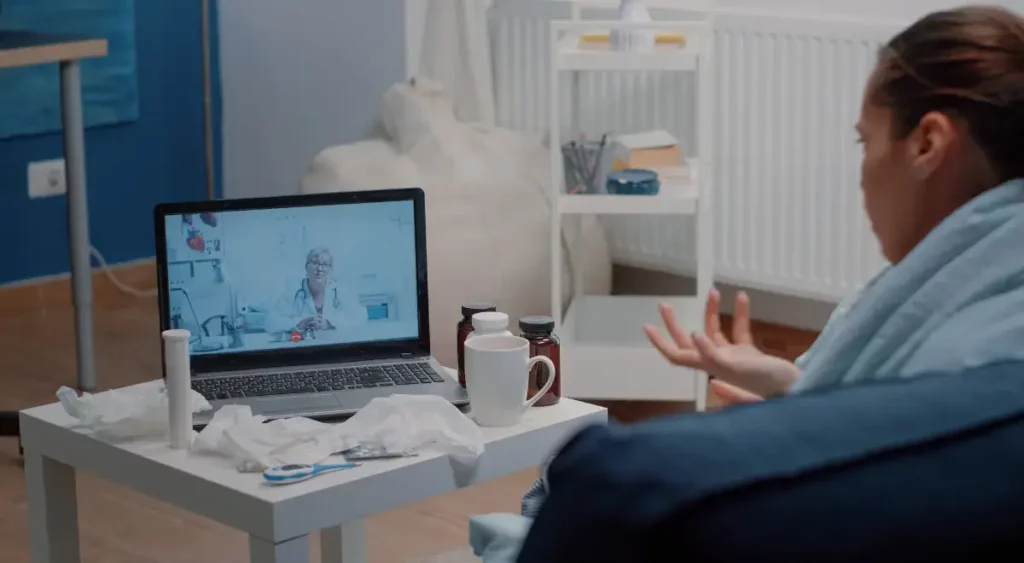Remote Patient Monitoring CPT Code 99091 Billing Guidelines

In today’s fast-paced world, where people barely have time for in-person doctor visits, Remote Patient Monitoring (RPM) has emerged as a game-changing system for patients and healthcare practitioners. It uses modern technology to lower healthcare expenses and improve patient outcomes and engagement.
In this blog post, we’ll take you through the CPT Code 99091 for Remote Patient Monitoring, its billing guidelines, reimbursements, and eligible devices.
Table of Contents
ToggleWhat Is CPT Code 99091?
CPT code 99091 refers to the independent collection and evaluation of physiological data remotely. CPT code 99091 should be reported no more than once in a 30-day period to include the physician or other qualified health care professional time involved with data accession, review and interpretation, modification of care plan as necessary (including communication to patient and/or caregiver), and associated documentation.
The billing guidelines for RPM Code 99091 were formulated by the Centers for Medicare and Medicaid Services (CMS) as it recognized the time it takes to analyze and interpret patients’ physiological data to treat a particular health condition. Just like all other RPM codes, CPT code 99091 has its unique set of guidelines for Medicare reimbursement that physicians and clinicians must be aware of.
CPT Code 99091 Billing Guidelines For Healthcare Providers & Patients
In 2018, Medicare approved coverage and RPM reimbursement (CPT code 99091) for physicians and other qualified healthcare professionals to collect and evaluate digitally transmitted and stored physiologic data. The 2024 CMS final rule allows physicians, clinicians, and other healthcare providers to use remote patient monitoring services to improve patient care and health outcomes while boosting revenue and reimbursements.
- For Healthcare Providers
CMS requires a physician or a competent healthcare professional to examine the physiologic data provided under CPT code 99091 billing standards for RPM. Data processing and interpretation happens after the data is transmitted and collected via the CPT codes 99453 and 99454.
A qualified healthcare professional is defined by the standards as an individual who, through education, training, licensure/regulation, and facility privilege, performs a professional service within his or her scope of practice and independently reports that professional service.
- For Medicare Patients
All Medicare patients are eligible for and can participate in RPM services. CMS classifies RPM as a telehealth service, but Medicare does not. This is why, Medicare covers remote patient monitoring devices for patients in their own homes, no matter where they live.
Billing Requirements For CPT Code 99091
The billing requirements for CPT Code 99091 are similar to those of other four remote patient monitoring CPT codes:
- An RPM device must comply with the FDA’s definition of a medical device.
- Before ordering a device, the patient must first opt into the service.
- Patients who have never had RPM before require a new patient evaluation.
- Patients who were enrolled in RPM during the Public Health Emergency (PHE) can continue to receive RPM services.
- To bill for CPT codes 99453 and 99454, the patient must utilize the RPM device for a minimum of 16 days each month.
- All data collection must be HIPAA compliant.
CMS’s 2021 Final Rule allows practitioners to deliver RPM services to patients with acute and chronic illnesses.
What Services Does CPT Code 99091 Cover?
The CMS final rule states that “Collection and interpretation of physiologic data stored digitally and/or transmitted by the patient and/or caregiver to the physician or other qualified healthcare professional, requiring at least 30 minutes of time, every 30 days.
In other words, 99091 includes at least 30 minutes each calendar month for healthcare staff to collect, interpret, and process RPM data transmitted by a patient. It also includes at least one patient to healthcare professional communication session, either by phone or email, in which medical management or monitoring advice is given.
Is Billing CPT Code 99091 and 99457 Together Allowed?
No, healthcare institutions cannot bill CPT codes 99091 and 99457 during the same billing period.
CPT 99091 can be billed once per 30 days per patient. 99091 services require proof of the time spent by a physician or other qualified healthcare professional accessing RPM data, examining and interpreting the data, and/or revising a patient’s treatment plan as needed. This includes a communication session with the patient or caregiver.
Current CPT Code 99091 billing parameters and average national payment rate is $52.71 This rate varies by region.
RPM Device Reimbursement Guidelines for CPT 99091
Cellular medical devices or Bluetooth technology enables RPM devices qualify for reimbursement. Physicians and patients may use several RPM devices for monitoring including:
- Glucose meters
- Blood pressure monitors
- Pulse Oximeters
- Weight Scales
A patient may be prescribed any of these remote patient monitoring devices to capture the patient’s vital signs and monitor certain health conditions regularly.
CMS states that the RPM devices that qualify for reimbursement must meet the standards defined by the FDA and don’t require to be cleared by the FDA.
Does CMS Allow Outsourcing for CPT 99091?
Yes, CMS allows healthcare organizations or clinical staff under the supervision of a physician to outsource RPM services to third-party remote monitoring firms that can take on certain monitoring and billing responsibilities on their behalf, thereby saving them with time for device setup, education, data review, and billing processes.
Generate Better Revenue & Reimbursement With HealthArc
At HealthArc, we believe Remote Patient Monitoring (RPM) is the future of healthcare and are committed to providing healthcare practitioners with the resources they need to calculate the exact reimbursement for CPT 99091. Our digital healthcare platform and clinical software enable healthcare practitioners to seamlessly integrate Remote Patient Monitoring into their practices, improving patient outcomes and medical management while keeping the expenses low.
Start using HealthArc today and join the healthcare revolution! Book a demo or feel free to talk to our team at +201 885 5571 for any queries about the RPM CPT codes and billing guidelines.
Most recent blogs
Categories
- Advanced Primary Care Management
- Behavioral Health Integration
- Cellular Remote Patient Monitoring
- Chronic Care Management
- Chronic Care Management Billing
- Chronic Care Management CPT Codes
- Chronic Care Management Program
- Chronic Care Management Software
- Digital Health Platform
- Principal Care Management
- Principal Care Management CPT Codes
- Remote Care Programs
- Remote Monitoring Devices
- Remote Patient Care
- Remote Patient Monitoring
- Remote Patient Monitoring Billing
- Remote Patient Monitoring CPT Codes
- Remote Patient Monitoring Devices
- Remote Patient Software
- Remote Therapeutic Monitoring
- Remote Therapeutic Monitoring Billing
- Remote Therapeutic Monitoring CPT Codes
- Telemedicine & RPM
- Transitional Care Management
- Transitional Care Management Billing
- Transitional Care Management CPT Codes
Related Posts
- December 28, 2023 | Read Time: 4 mins
6 Key Changes in RTM Billing Applicable in 2024
- September 1, 2023 | Read Time: 4 mins





